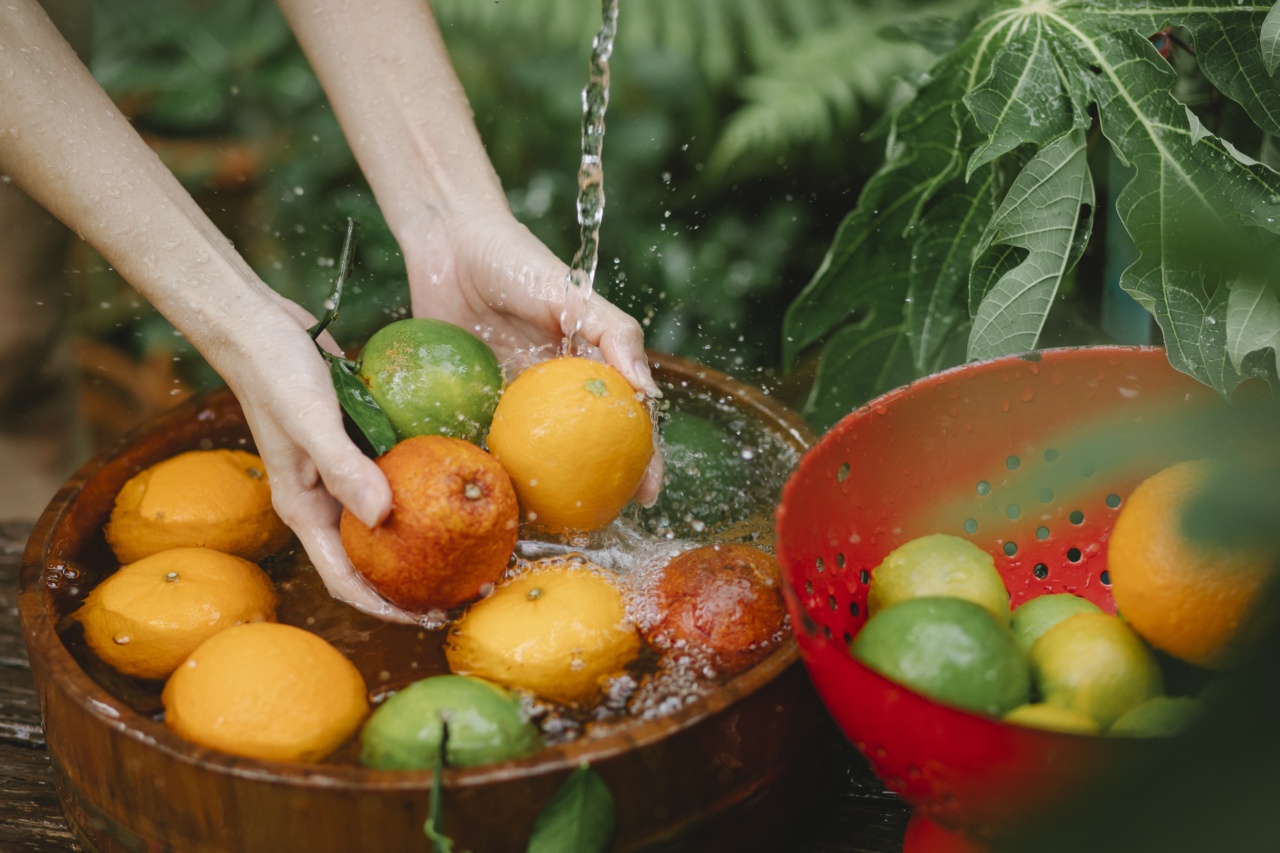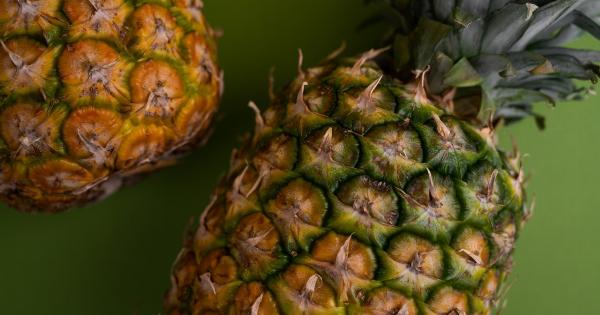Eating a healthy and balanced diet is essential to maintain good health and overall well-being. However, it’s not just about what you eat, but how you pair your foods together.
Certain food combinations can actually help your body absorb more nutrients, making your meals even more beneficial. Below are 30 nutrient-absorbing food combinations you can add to your diet.
1. Beans and Rice
The combination of beans and rice is an excellent source of protein, fiber, and essential amino acids. It helps your body better digest and absorb these nutrients while stabilizing your blood sugar levels.
2. Yogurt and Berries
Yogurt and berries provide a great balance of carbohydrates, protein, and fiber. The probiotics in yogurt also help improve your gut health, allowing your body to better absorb nutrients.
3. Spinach and Lemon Juice
Adding lemon juice to your spinach salad helps improve iron absorption. Vitamin C, which is present in lemon juice, helps convert the non-heme iron in spinach into a form that’s easier for your body to absorb.
4. Tomatoes and Olive Oil
Tomatoes are a great source of lycopene, an antioxidant that helps protect your body against cell damage. Eating tomatoes with olive oil helps increase the absorption of lycopene as it’s a fat-soluble nutrient.
5. Broccoli and Mustard
The compounds in mustard help activate an enzyme that releases sulforaphane in broccoli, a naturally occurring compound with anti-cancer properties. Pairing mustard with broccoli increases the absorption of sulforaphane, making it even more potent.
6. Tuna and Ginger
The anti-inflammatory properties of ginger complement the omega-3 fatty acids in tuna. Eating tuna with ginger helps reduce inflammation, improve digestion, and boost nutrient absorption.
7. Sweet Potato and Avocado
Sweet potatoes are an excellent source of beta-carotene, a precursor of Vitamin A, while avocado contains healthy fats that aid in Vitamin A absorption. Pairing sweet potato with avocado enhances the absorption of beta-carotene.
8. Leafy Greens and Eggs
The protein in eggs helps your body absorb carotenoids, which are antioxidants present in leafy greens like spinach and kale. Adding an egg to your salad or smoothie bowl boosts the nutrient absorption significantly.
9. Almonds and Yogurt
Almonds are an excellent source of Vitamin E, which works as a potent antioxidant in your body. Eating almonds with yogurt, which contains live cultures, improves nutrient absorption and digestion, enhancing the health benefits of both foods.
10. Dark Chocolate and Apples
Dark chocolate and apples are potent sources of antioxidants, which improve heart health, lower inflammation and boost overall well-being.
The flavonoids in dark chocolate and apples work synergistically, enhancing absorption and availability of nutrients.
11. Spinach and Avocado
Avocado is an excellent source of healthy fats that improve the absorption of fat-soluble vitamins like Vitamin E and K, both of which are present in spinach. Eating spinach salad with avocado boosts absorption and maximizes nutrient benefits.
12. Black Beans and Bell Peppers
Both black beans and bell peppers are rich in Vitamin C, an essential nutrient that supports the immune system and promotes cell health. Eating black beans with bell peppers enhances Vitamin C absorption and promotes overall health.
13. Salmon and Asparagus
Salmon is an excellent source of Omega-3 fatty acids, which are essential for heart health and cognitive function. Asparagus is packed with folate, a nutrient required for red blood cell production and cellular growth.
Pairing salmon with asparagus enhances nutrient absorption and provides potent health benefits.
14. Citrus Fruits and Leafy Greens
The iron present in leafy greens is better absorbed in the presence of Vitamin C, which is present in high amounts in citrus fruits.
Adding orange slices to your spinach salad or squeezing lemon juice over your kale chips dramatically enhances nutrient absorption and boosts overall health.
15. Grilled Vegetables and Hummus
Pairing hummus with grilled vegetables like bell peppers, zucchini, and eggplant enhances nutrient absorption and satiety.
The protein and fiber in hummus help slow down the digestion of carbohydrates in vegetables, promoting better nutrient absorption and overall health benefits.
16. Brown Rice and Lentils
Both brown rice and lentils are excellent sources of fiber and protein. Combining brown rice with lentils improves the protein quality and enhances nutrient absorption, boosting overall well-being.
17. Whole Wheat Bread and Natural Peanut Butter
Whole wheat bread is a good source of fiber, while natural peanut butter provides healthy fats and proteins. Combining whole wheat bread with natural peanut butter enhances nutrient absorption, promoting better health benefits.
18. Brussels Sprouts and Walnuts
Brussels sprouts are an excellent source of Vitamin K, an essential nutrient that helps with blood clotting and bone health. Walnuts, on the other hand, are rich in plant-based omega-3 fatty acids that support heart health.
Pairing roasted Brussels sprouts with walnuts improves nutrient absorption and maximizes overall health benefits.
19. Blueberries and Greek Yogurt
Greek yogurt is an excellent source of protein and calcium, while blueberries are rich in antioxidants. Combining blueberries with Greek yogurt boosts nutrient absorption and overall health benefits significantly.
20. Quinoa and Mixed Vegetables
Quinoa is a rich source of protein, fiber, and essential nutrients like magnesium and manganese. Pairing quinoa with mixed vegetables like broccoli, spinach, carrots, and bell peppers promotes better nutrient absorption and overall health benefits.
21. Eggs and Sweet Potato
Sweet potato is an excellent source of beta-carotene, while eggs provide protein and healthy fats. Combining eggs with sweet potato promotes better nutrient absorption and overall health benefits.
22. Oatmeal and Flaxseeds
Oatmeal is an excellent source of fiber, while flaxseeds are rich in plant-based omega-3 fatty acids. Combining oatmeal with flaxseeds enhances nutrient absorption and supports heart health.
23. Whole Grains and Leafy Greens
Whole grains like brown rice, quinoa, and barley are compatible with leafy greens like kale, spinach, and lettuce. Eating whole grains with leafy greens promotes better nutrient absorption and overall health benefits.
24. Yogurt and Cucumbers
Yogurt is an excellent source of protein, calcium, and probiotics, while cucumbers are rich in Vitamin K and antioxidants. Pairing yogurt with cucumbers enhances nutrient absorption and supports gut health.
25. Chia Seeds and Greek Yogurt
Greek yogurt is an excellent source of protein and probiotics, while chia seeds are rich in fiber and essential fatty acids. Combining chia seeds with Greek yogurt enhances nutrient absorption and supports digestive health.
26. Melons and Lime Juice
Watermelon, cantaloupe, and honeydew melons are rich in antioxidants and potassium, while lime juice is a potent source of Vitamin C. Pairing melons with lime juice enhances nutrient absorption and supports overall health.
27. Brown Rice and Broccoli
Broccoli is an excellent source of fiber, Vitamin C, and glucosinolates that protect against cancer. Combining brown rice with broccoli enhances nutrient absorption and promotes overall health benefits.
28. Tuna Salad and Carrots
Tuna salad is a rich source of Omega-3 fatty acids and selenium, while carrots are rich in Vitamin A and antioxidants. Pairing tuna salad with carrot sticks enhances nutrient absorption and supports overall health.
29. Tomatoes and Eggs
Tomatoes are rich in lycopene and antioxidants, while eggs provide protein and healthy fats. Pairing tomatoes with eggs enhances nutrient absorption and promotes overall health benefits.
30. Green Smoothies with Macadamia Nuts
Green smoothies are an excellent source of fiber, vitamins, and minerals, while macadamia nuts provide healthy fats and proteins. Adding macadamia nuts to your green smoothies enhances nutrient absorption and satiety, promoting better overall health.






























